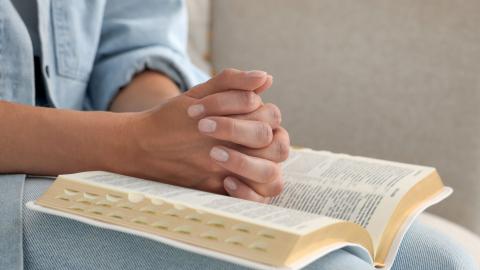
Ode to a Valiant Woman
A woman of valour who can find? for her price is far above rubies. The heart of her husband doth safely trust in her, and he hath no lack of gain…. She considereth a field, and buyeth it; with the fruit of her hands she planteth a vineyard. She girdeth her loins with strength, and maketh strong her arms… Strength and dignity are her clothing; and she laugheth at the time to come. (Proverbs 31:10-25, the Hebrew in English Translation)
Today I chose an unusual translation for this devotion because I want us to look at this passage through fresh eyes to discover a woman who is strong, bold, and courageous. This passage means a lot to me, because at one point in my life I felt very beaten down and discouraged. In that moment, God gave me a picture of a strong female warrior. I had been that woman once, and I wanted to be her again. So let’s take a new look at this passage.
First of all, Proverbs 31 is a poem—a sort of “Ode to an Incredible Woman.” Ancient poetry can be a bit dramatic as it makes its points with beautiful words and images, and the Hebrews understood this. To this day in Jewish households on Friday evenings before the Sabbath, husbands recite Proverbs 31 to their wives in honor and praise of their virtues, although I think it’s safe to assume most of those modern-day women haven’t spun wool or flax on a spindle like the passage mentions.
Also notice that this woman has servants, and there’s no mention of her caring for small children. She’s likely a wealthy woman in her middle years enjoying the freedom that stage of life offers. As some scholars suggest, she might even have been Bathsheba, queen of all Israel. Those facts will help us keep this passage in perspective and stop us from putting too much pressure on ourselves or the women in our lives to reach some unattainable paragon of perfection.
Now let’s take a look at why this woman is being praised. She goes out and buys land—on her own. So she’s an independent businesswoman with her own funds who knows her own mind. She has strong arms. Clearly this is no weak woman. She goes into the marketplace to sell her goods, which tells us she works beyond the confines of her home. Her husband has full confidence in her and praises her. While she’s honorable, this woman doesn’t seem to be helpless or harmless.
She’s clothed with strength and dignity, she’s wise, and she laughs at the days to come!
If we look back to the original Hebrew, the term in verse 10 that’s often translated as “a wife of noble character” or “a virtuous woman” is eshet chayil. Eshet typically means woman, or in some cases wife. Chayil is used throughout the Bible to describe men in battle. It denotes strength, might, and courage. “Valiant” is probably the best translation, as in the Douay-Rheims and Jubilee versions of the Bible, which both use the term “valiant woman.” Meanwhile the Hebrew in English version of the Bible similarly calls her a “woman of valour.”
As we meditate upon Proverbs 31, it becomes obvious that this passage was meant to praise and inspire women, to lift them up and give them strength and courage—to honor our sisters like the Jewish women who honor each other with the phrase “eshet chayil.”
Perhaps you’re a woman like I was, looking for strength and courage or a new direction in life. Or maybe you’re a man who longs to support and encourage the women around you. Either way, I hope that this passage will inspire you to see women for all that God has created them to be.
Do you know any valiant women? How can you uplift the women in your life and encourage them to greater strength and courage?
~
Scripture is quoted from the Hebrew-to-English translation, © Mechon Mamre, 2024.




